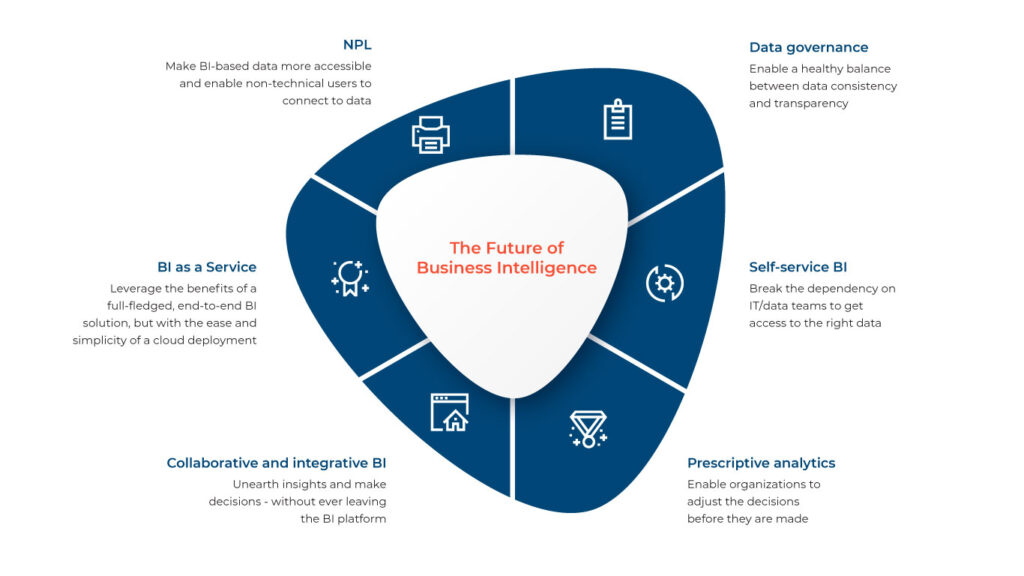In today’s fast-paced business world, data is king. Companies have access to more information than ever before, and the ability to use that data to make informed decisions can be the difference between success and failure. That’s where business intelligence (BI) projects come in – they are designed to help organizations make sense of their data and gain valuable insights. However, despite the potential benefits, many BI projects fail to deliver the expected results.
So why do these projects fail? There are a multitude of reasons, ranging from poor planning and implementation to a lack of user adoption. But one common thread is that many organizations fail to fully understand the complexity of these projects and the resources required to successfully execute them. In this article, we will explore the main reasons why business intelligence projects fail, and provide practical tips for ensuring that your next BI project is a success.
Business Intelligence projects can fail due to various reasons, such as lack of resources, inadequate planning or budget, lack of user acceptance and inadequate quality assurance. Poor data quality, inadequate analysis and lack of proper implementation can also lead to project failure. Additionally, lack of training and communication between stakeholders can be a cause of a failed Business Intelligence project.

Why Business Intelligence Projects Fail?
Business intelligence (BI) projects are essential for any organization that wants to stay competitive in the market. However, many organizations have experienced a lack of success when it comes to BI initiatives. There are various reasons why these projects fail, and understanding them is critical to ensure future success.
Poor Planning and Execution
Poor planning and execution of a BI project can lead to failure. It is important to create a comprehensive plan that takes into account all aspects of the project, from budgeting to data management. Additionally, it is important to assign the right personnel to execute the project and ensure that their skills and expertise are up to par. Without proper planning and execution, a BI project is likely to fail.
Lack of User Buy-In
The success of any BI project depends on user buy-in. Without users actively participating in the project and using the results, the project is unlikely to succeed. It is important to involve users in the planning and decision-making process to ensure that the project is tailored to their needs. Additionally, it is important to provide users with the necessary training and resources to ensure that they are able to use the results effectively. Without user buy-in, BI projects are unlikely to be successful.
Inadequate Data Quality
Data quality is an important component of any BI project. Poor quality data can lead to inaccurate results, which can lead to costly mistakes. It is important to ensure that the data is accurate and up-to-date to ensure that the results can be trusted. Additionally, it is important to ensure that the data is properly stored and secured to prevent unauthorized access. Without adequate data quality, BI projects are likely to fail.
Lack of Resources
Many BI projects fail due to a lack of resources. It is important to have sufficient resources to ensure that the project is completed on time and within budget. It is also important to ensure that the right personnel are assigned to the project and that they have the necessary skills and expertise. Without sufficient resources, BI projects are unlikely to be successful.
Poor Communication
Poor communication is another common reason why BI projects fail. It is important to ensure that everyone involved in the project is kept informed about the progress and any changes that need to be made. Additionally, it is important to ensure that everyone is on the same page when it comes to the objectives of the project. Without effective communication, BI projects are likely to fail.
Inadequate Technology
Technology is an integral part of any BI project. It is important to ensure that the technology used is up to date and capable of handling the project’s requirements. Additionally, it is important to ensure that the technology is properly maintained and secure. Without adequate technology, BI projects are unlikely to succeed.
Ineffective Management
Ineffective management is another common reason why BI projects fail. It is important to ensure that the project is managed effectively to ensure that it is completed on time and within budget. Additionally, it is important to ensure that the project is monitored regularly to ensure that it is progressing as expected. Without effective management, BI projects are likely to fail.
Frequently Asked Questions
Business intelligence projects fail when the data is not properly analyzed and the insights are not used effectively to make decisions. This article provides answers to some common questions related to why business intelligence projects fail.
Why Is Planning Important for Business Intelligence Projects?
Planning is essential for ensuring the success of any business intelligence project. Having an effective plan helps to define the objectives of the project, identify the data sources that need to be used, and determine the timeline for the project. It also allows for the development of a strategy that can be used to measure success and make adjustments as needed. Without proper planning, the project may not meet the desired outcomes and may even fail.
What Are Some Common Challenges in Business Intelligence Projects?
Business intelligence projects can be challenging due to the complexity of the data and the need to analyze it properly. There can be challenges in collecting and integrating data from various sources, as well as challenges in transforming the data into meaningful insights. Additionally, there can be challenges in utilizing the insights to make decisions that will have a positive impact on the business.
What Are the Risks of Poorly Executed Business Intelligence Projects?
Poorly executed business intelligence projects can have a negative impact on a business. Without the proper analysis, the insights may not be accurate, and decisions made based on these insights could have a detrimental effect on the business. Additionally, a poorly executed project can be costly, as it will consume time and resources that could have been better spent elsewhere.
What Should Be Considered When Developing a Business Intelligence Project?
When developing a business intelligence project, it is important to consider the objectives of the project and the data that needs to be collected and analyzed. Additionally, it is important to consider the resources that are available and the timeline for the project. Having a well-defined plan is essential to ensure the success of the project.
What Are Some Ways to Ensure the Success of Business Intelligence Projects?
To ensure the success of business intelligence projects, it is important to have a well-defined plan. This plan should include the objectives of the project, the data sources that need to be used, and the timeline for the project. Additionally, the plan should outline the strategy for analyzing the data and utilizing the insights to make informed decisions. Having a clear plan will help to ensure the success of the project.

Why Business Intelligence Projects Fail
In conclusion, it is clear that there are many factors that contribute to the failure of business intelligence projects. These can range from poor planning and lack of stakeholder buy-in to technical issues and insufficient training. It is essential for organizations embarking on such projects to take a holistic approach, involving all relevant parties, from the outset. This means identifying clear goals, establishing appropriate measures of success, and ensuring that all involved understand the importance of the project and their role in its success.
Despite the challenges, the benefits of successfully implementing business intelligence projects are clear. These can include improved decision-making, increased efficiency, and enhanced competitiveness. By taking a strategic and collaborative approach, organizations can overcome the obstacles that have led to the failure of so many previous projects and reap the rewards of effective business intelligence. In short, business intelligence projects can be a game-changer for organizations, but only if they are approached with care, attention to detail, and a clear focus on the desired outcomes.


